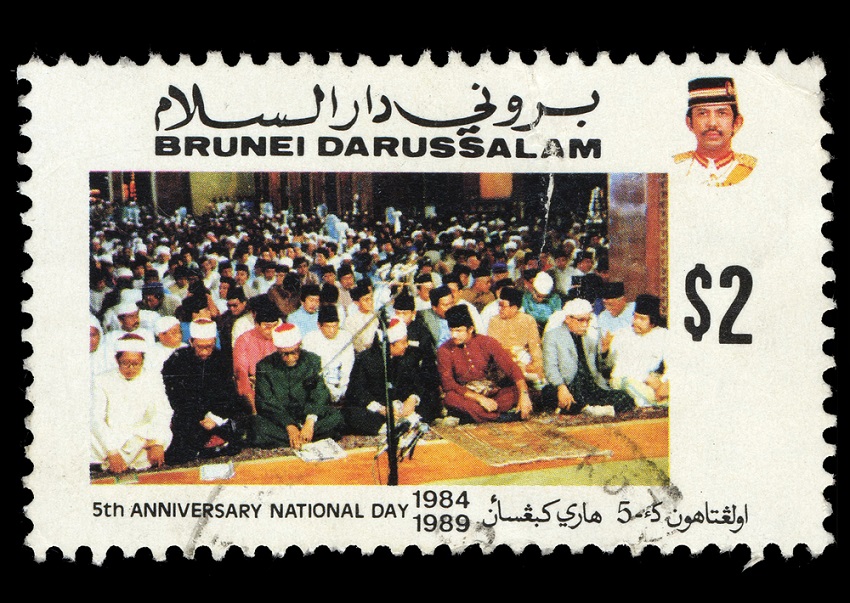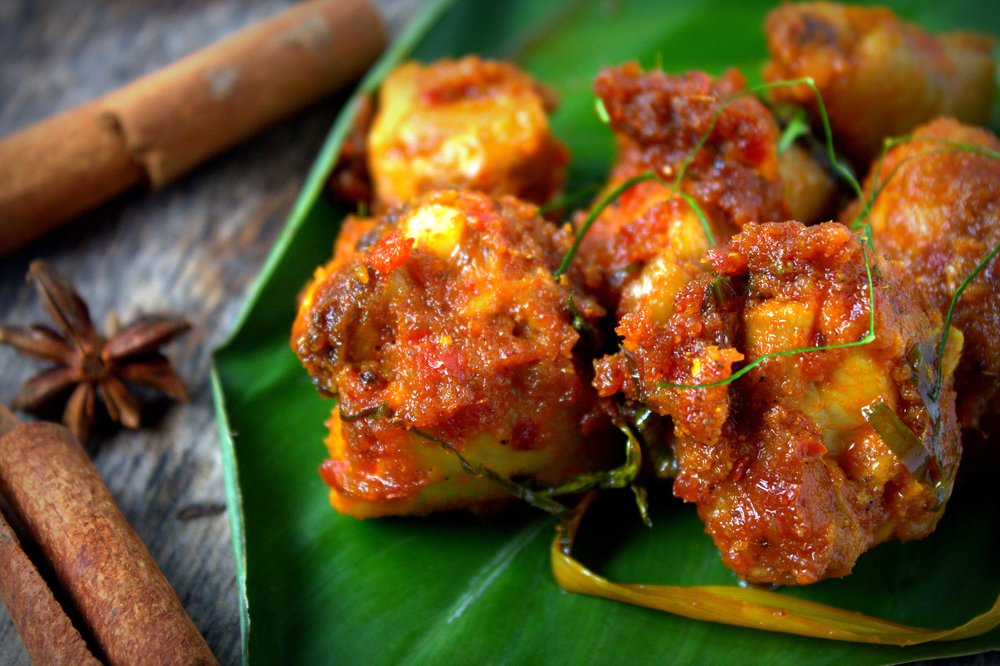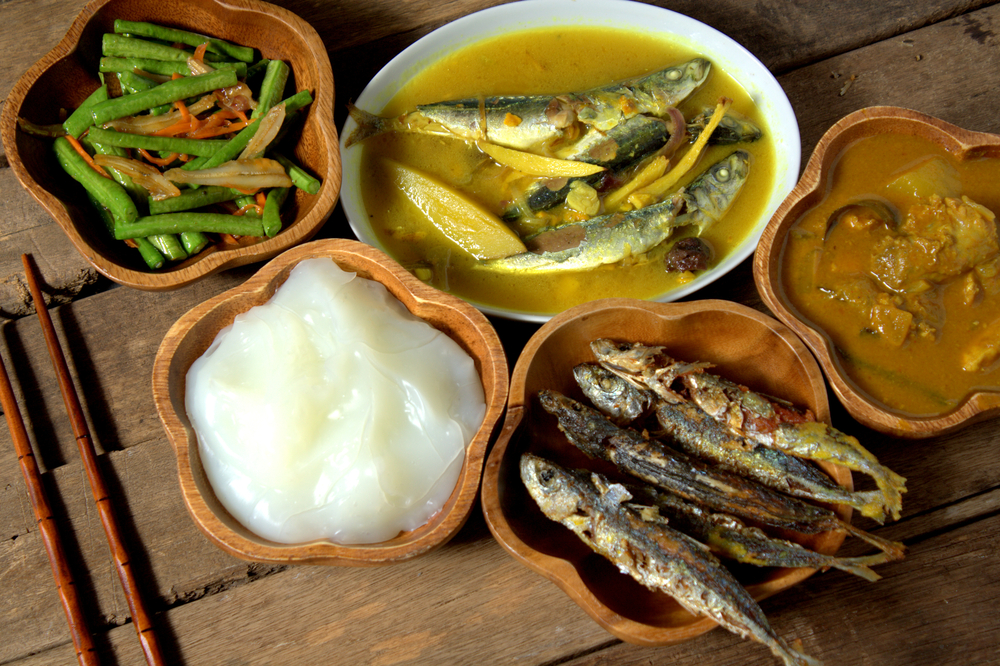Brunei - history
When Brunei started emerging in a historical page
Brunei had made its appearance in world history around the 5th century when the land was known among Chinese sailors as “Boni”, the city port in South China Sea, and other names like Polo, Poni, Poli and Bunli (ดลมนรรจน์ บากาและชัยวัฒน์ มีสัณฐาน, 2557: 35). The city grew as a trading state in a way that it was enjoying the benefits of wind lines. When the Chinese trading ships stopped at Vietnamese shores, Southeast Moonsoon would, then, take them to Brunei.
Despite the fact that Chinese accounts record that Boni was Southern Mountainous Land, Viyajapura, another name of Brunei, appeared a tributary state to Srivajaya Empire located on Sumatra Island in the now Indonesia.
During the 10th Century, the evidence suggests Boni and China had a trading relation when Song Dynasty ruled over China. In the 14th century, Brunei was known as Beruneng (ดลมนรรจน์ บากาและชัยวัฒน์ มีสัณฐาน, 2557: 35) as appearing on a historical account “Negarakretagama” written in Majapahit era. The glorious days of Majapahit Empire being centered at Java saw annual tributes of betel nuts from Brunei.
The Dawn of Sultanate State of Brunei
The 15th century did not only see the glory of Malacca but also Brunei. Awang Alak Betatar, the ruler of Brunei, had converted to Islam before ascending to throne as the first king of Brunei, Sultan Muhamad Shah, and firmly securing Islam, having originated from Malacca and existed earlier, on Borneo Island.
Princess Ratna Dewi, one of his daughters, married Ong Sam Ping, a Chinese traveling to Brunei in 1375. He was a trading representative offering tributes to Hong Ou Emperor of Ming Dynasty, and later became a nobleman extending his influences across North Borneo.
Abdul Majid Hassan succeeded his father after Sultan Muhamad Shah had died. Sultan Abdul Majid Hassan appeared on Chinese historical accounts as he sent a diplomat and tributes to China. The diplomat’s tomb is in Nanjing. His succession had been usurped before Petah Berbai took the throne as Sultan Ahmad.
Meanwhile, Ong Sam Ping was traveling back to China, where he reached an agreement with Yongle Emperor that Brunei and Kinabatangan River were spheres of influence of China. He further demanded his body be buried there too. However, his son came back to Brunei in order to succeed his power, while his daughter married Sultan Ahmad and gave birth to a princess. The Princess would later marry Sultan Sharif Ali. Thus, the Bruneian monarchy respects Ong Sam Ping as one of their royal ancestors.
Golden Age of Brunei and Western Invasion
The golden age of Brunei began in Sultan Bolkiah era when the kingdom was extending the influences to Islands of Borneo, Sulu, Palawan and even Luzon. The sultan himself also paid visits to Java and Malacca.
Ferdinand Magellen, the Spanish sailor, and his fleet of ships arrived at Brunei in Sultan Bolkiah time (1485-1524). It described the intricacy of Bruneian court and insisted it was the grandest city on Borneo Island (รงค์ วงษ์สวรรค์, 2527: 57). The accounts record the hospitality and the city surrounding reflecting the golden age of Brunei. Ferdinand Magellen, unfortunately, never made it to Brunei because he had been killed by the Filipino native.
In the end, Spain became a threat to Brunei when it succeeded at seizing and setting up a base at Manila harbor in 1578. Spain managed to extend its influences and introduce Christianity to the nearby areas while attacking Brunei with advanced technology. It, finally, won Perang Kastila War as recorded in history of Brunei with a claim made by Spain that Brunei had somehow supported the Manila and Island of Luzon to resist against them. Nonetheless, it would not take long for Spain to retreat due to Bruneian resistance and the fact that they were not used to living in tropical rainforest area. Brunei became independent, yet was entering another warfare.
Civil War
Sulu Kingdom, once falling under Bruneian influences, declared independence after Spain had gone. However, Spanish influences were still dominating the Philippines. Brunei, thus, could not expand its territories the Northeast like they had in the past.
Sulu was a new threat to Brunei in the 17th Century. Given that the two had cooperated in producing and supplying needed goods for each other, Sulu decided to intervene in Bruneian royal succession dispute. In the reign of Sultan Haji Muhammad Ali, the infamous cockfighting dispute took place. A cock fighter of Chancellor Abdul Hakkul Mubin’s son won a fight over Prince Alam’s, a son of the Sultan. The prince was so ashamed he took a dagger out and deliberately stabbed the chancellor’s son on his chest to death.
The chancellor headed to the palace and demanded to meet the prince, but he had escaped earlier. The chancellor, then, flared up with anger massacring people including the sultan himself at the palace. He claimed the throne and became the next Sultan, Sultan Abul Hakkul Mubin while appointed the late sultan’s nephew as the Chancellor (Bendahara).
Though his early days seemed smooth, the undercurrents among the late sultan’s relatives spark the unrest. They manipulated Prince Muhammad Diya to resist against him. The prince tricked the sultan into believing the palace was under attack and suggested he evacuate to Cermin Island. When the sultan did so, the prince claimed the throne. It would not take long for the sultan in exile to learn the truth, and the civil was about to break out.
The sultan in exile was able to secure his stronghold in Kinarut for 10 years defending the sultanate attacks. The war took long in a way in which it caused Sultan Muhammad Diya concern. He, then, asked for help from Sulu Kingdom. Eventually, he won the war and the sultan in exile died. The only sultan now rewarded Sulu Kingdom with a northern part of Borneo (Sabah State of Malaysia).
White King Invasion
Brunei remained independent after the civil war as well as a port city. However, the invasion of Britain instantly became a new threat to them.
Britain’s East Indies Company expressed an interest in expanding its influence on Island of Borneo, an important trade route. In other words, Britain wanted to lessen the influential Holland in this region.
The Dayak people provoked a revolt and caused a stir in Sarawak. Sultan Omar Ali Saifuddin II managed to send Mudahassim, his regent, to be stationed at Sarawak in order to put down the revolt when James Brooke traveled to Sarawak. Therefore, the regent asked for help from James Brooke’s troops for that they would lend him a hand in putting down the revolt. However, James initially turned down. It was not until 1841 when James agreed to help.
Since he succeeded at putting down the revolt in Sarawak, the Sultan signed a treaty rewarding James with Sarawak and Serian Division, and also made him a “king”. James later has been known as “White Raja” or “White King”, who ruled over Sarawak that completely fell into his hands in 1843.
In 1846, Britain attacked Brunei and forced it to sign a treaty giving up Brunei’s occupation. Brunei had to cede Labuan Island to Britain. In the next year, Brunei signed a treaty strengthening trades and improving relation with Britain while James Brooke and his power successor continued expanding borders by claiming Brunei’s territories.
Meanwhile other nations started extending their influences to Brunei, in 1860, it allowed Charles Lee Roses, the American citizen, to rent out a piece of land. The same goes to Baron Von Overbeck, the Australian citizen, who rented its land in 1877. (ดลมนรรจน์ บากาและชัยวัฒน์ มีสัณฐาน, 2557: 51) It occurred that leasing pieces of land to the Australian and the American upset Spain, Germany and Holland.
Brunei under British Empire
After ceding Sarawak, Labuan Island and Sabah, Brunei started to realize British Empire’s threats. On 17th September 1888, Sultan Hashim Alam Aqamaddin decided to sign a treaty submitting to become a British protectorate. Its idea states that Brunei was neither ceding nor leasing any piece of land to other nations without British permission. Britain would be in charge of international affairs of Brunei. That simply means Brunei lost its independence to Britain.
However, the treaty did not promise what Brunei had expected. Brunei could not keep its territories. Sarawak Kingdom of the White King continued thriving and claiming Bruneian territories while Britain was busy encouraging those territories to resist the Sultan of Brunei. In the end, it lost Limbang resulting in the two separate parts of Brunei at the present. The last piece of land that Brunei ceded to Britain is Lawas in 1904. Brunei secured the area of approximate 6,000 square kilometers after it had claimed over 100,000 kilometers.
In 1906, Britain continued extending its influential administration forcing the Sultan of Brunei to sign another treaty that constituted Sultanate Cabinet. Britain could intervene Bruneian internal affairs after it had done so with the international affairs. But what Britain never laid its hands on was Islamic affairs.
Black Gold that Changed the Face of Brunei
On one day in 1926, two British men, F.F. Marriot and T.G. Cochrane, were riding bicycles along the Syrian shore to Kuala Belait in western Brunei. As soon as they arrived there, they smelled crude oil. In no time, the two reported to the Bruneian governors and urged them to explore this area. Luck took Brunei’s side when the exploration oil drilling was successful. Underneath the land lies a great deal of valuable natural resources. (รงค์ วงษ์สวรรค์, 2527: 76)
Before oil in Syria was unearthed, Britain had already started exploring oil wells in Brunei in 1899. It had discovered oil and natural gas in Kuala Belait, but its amount was not worth drilling. British Malaya Petroleum Company had been founded in 1922 with a purpose of exploration oil drilling in Brunei before it was transformed to Brunei Shell Petroleum Company.
The Second World War
On 16th December 1941, 8 days after Japan attacked Pearl Harbor in Hawaii, Japan led 10,000 armed forces in occupying Brunei. It took only 6 days to take total control of Brunei and forced Sultan Ahmad Tajuddin to sign an agreement ceding Brunei to Japan. During that course of time, Japan forced all government officials to study Japanese language and demanded teaching Japanese at school. Japan created its own currency called “Duit Pisang” or “banana money” resulting in inflation and depressed economy.
Britain had been unable to help Brunei because its troops were sent to fight in European battlegrounds. When wars at Europe started to calm down, Britain and Allies turned to attack Japanese strongholds in Brunei. On 10th June, Australian troops advanced to Island of Borneo and released it from Japanese occupation. Eventually, the Allies won in July 1946.
The Construction of Brunei
Before the Japanese occupation, the administration of colonial Brunei, Sarawak and northern Borneo directly reported to Straits Settlements with its capital in Singapore. Brunei at first had directly reported to Sarawak.
Tujuh Serangkai or the seven representatives, appointed by Sultan Omar Ali Saifuddin III (the father of the current Sultan) started surveying what the people needed in or der to draft the Constitution in June 1953. Six years later, the Sultan himself travelled to England and join the meeting with the British discussing Bruneian Constitution. The British finally ratified drafting that Constitution.
On 29th September 1959, the British led by Sir Robert Scott, the commander and chief of British Southeast Asia signed the Constitution with the Sultan at Bandar Seri Begawan. It rules out that the Sultan is Head of State and the Bruneian government runs its own administration. England is to protect Brunei and is in charge of Brunei’s international affairs. Resident for British citizen was dismissed while British diplomatic positions remained. The Constitution enacts that Brunei has achieved the rights to rule over itself.
Due to the Constitution, Brunei has its own National Legislative Assembly with half of the members being appointed by the Sultan while the other half is elected. The 1962’s election saw the Brunei’s People Party win the majority of the seats.
The Turning Point
Brunei encountered political turmoil when nationalism was thriving with the construction of Malaysia. Before 1962, Britain, Malaya, Singapore, Sarawak and Sabah had a discussion on founding “Federation of Malaysia” unifying British colonies on Malay Peninsula and Strait of Malacca as a new country that inherited the construction of former Federation of Malaya.
This idea was strongly opposed by the neighboring countries like the Philippines and Indonesia claiming the right over Sabah. Indonesia accused Malaya of being a descendant of British Empire wishing to expand its influence in this region.
The Sultan agreed upon unifying Brunei as part of Federation of Malaysia. However, Brunei’s People Party led by Azahari objected that plan. It put forward the idea of unifying Brunei with Sarawak and Sabah in order to found a new country called “Kalimantan Utara” or “Northern Kalimantan” so that Brunei would not fall under Malay Peninsula influences. The Sultan could become the Sultan of the new country.
After the general election in 1962, Brunei’s People Party won 16 seats out of 33 seats, and was about to propose a plan on founding the new country to the council meeting. Nonetheless, the Sultan rejected the plan and postponed the council meeting opening formerly set on 5th December 1962.
In the morning of the next day, North Kalimantan National Army / Tentera Nasional Kalimantan Utara supported by Indonesia staged an uprising in the country. In response, the Sultan declared state of emergency and asked for help from British Gurkha soldiers. When the situation settled, the Sultan decided not to join Federation of Malaysia. So, in 1963 Malaysia was born without Brunei joining.
Brunei and its Absolute Independence
Brunei got back on track of improvement again after passing a state of turmoil. It had already initiated the nation’s development plans in 1963 urging the developments of exploration, petroleum production, education and transportation. The second development plan had started in 1962 before the turbulent time, and it attached the importance to improving quality of life of the people.
In 1971 Crown Prince Hassanal Bolkiah travelled to England and join a meeting discussing about Brunei’s independence. Primarily, it reached a mutual agreement in which Brunei had absolute independence granting its own administration. On the other hand, Britain continued helping with the international affairs and both internal and external defenses. Many agreements followed. It was not until May 1983 when Britain announced Brunei would be a sovereign state by next year. At midnight on 1st January 1984, Crown Prince Hassanal Bolkiah read the declaration of independence to his Bruneian audience himself.
Post-Colonial Brunei
The sultanate government has continued improving quality of life of the people after the colonial days ended. Just when Brunei achieved independence, it immediately joined ASEAN or Association of South East Asian Nations. University of Brunei Darussalam was opened in 1987.
Bibliography
ดลมนรรจ์ บากา และ ชัยวัฒน์ มีสันฐาน. ประวัติศาสตร์บรูไน A History of Brunei. พิมพ์ครั้งที่ 1. กรุงเทพ: มูลนิธิโครงการตำราสังคมศาสตร์และมนุษยศาสตร์, 2557
ศิริพร สมัครสโมสร. บรูไน อาณานิคมของอังกฤษ. พิมพ์ครั้งที่ 1. กรุงเทพ: มูลนิธิโครงการตำราสังคมศาสตร์และมนุษย์ศาสตร์, 2541
รงค์ วงษ์สวรรค์. บุหลันลบแสงสุริยา-บรูไน. พิมพ์ครั้งที่ 1. กรุงเทพ: สำนักพิมพ์มติชน, 2527
อรอนงค์ กรุณาและคณะ. หน้าต่างสู่โลกกว้าง-มาเลเซีย. พิมพ์ครั้งที่ 1. กรุงเทพ: สำนักพิมพ์หน้าต่างสู่โลกกว้าง, 2547
อาณัติ อนันตภาค. ประวัติศาสตร์มาเลเซีย บรูไนและสิงคโปร์. พิมพ์ครั้งที่ 1. กรุงเทพ: สำนักพิมพ์ยิบซีกรุ๊ป, 2557
Central Intelligent Agency [Homepage on the Internet]. The World Factbook: Brunei. 2015; [Cited 2015 Oct 25]. Available from: https://www.cia.gov/library/publications/the-world-factbook/geos/bx.html
Brunei Tourism [Homepage on the Internet]. Brunei; [Cited 2015 Oct 25]. Available from: http://www.bruneitourism.travel/index.php
The Government of Brunei Darussalam [Homepage on the Internet]. History of Brunei; [Cited 2015 Oct 25]. Available from: http://www.history-centre.gov.bn
Nusantara Studies Center [Homepage on the Internet]. ชนพื้นเมืองในรัฐซาราวัค ประเทศมาเลเซีย; [Cited 2015 Oct 25]. Available from: http://nikrakib.blogspot.com /2009/12/blog-post_115.html
The Government of Brunei Darussalam [Homepage on the Internet]. Flag of Brunei; [Cited 2015 Oct 25]. Available from: https://web.archive.org/web/19990427213829/http://www.brunei.gov.bn/about_brunei/flag.htm
Columbus Travel Media Ltd. [Homepage on the Internet]. Brunei Weather, Climate and Geography ; [Cited 2015 Oct 25]. Available from: http://www.worldtravelguide.net/brunei/weather-climate-geography
Office Holiday [Homepage on the Internet]. Public Holiday in Brunei 2015; [Cited 2015 Oct 25]. Available from: http://www.officeholidays.com/countries/brunei/
The Government of Brunei Darussalam [Homepage on the Internet]. Sultan of Brunei; [Cited 2015 Oct 25]. Available from: http://www.history-centre.gov.bn/sultanbrunei.htm
Brunei Shell [Homepage on the Internet]. History of Oil and Gas; [Cited 2015 Oct 25]. Available from: https://www.bsp.com.bn/main/about/history.htm
The Commonwealth [Homepage on the Internet]. Brunei Darussalam: History; [Cited 2015 Oct 25]. Available from: http://thecommonwealth.org/our-member-countries/brunei-darussalam/history#sthash.GnafvSr1.dpuf
The World Bank Group [Homepage on the Internet]. International tourism, number of arrival; [Cited 2015 Oct 25]. Available from: http://data.worldbank.org/indicator/ST.INT.ARVL
The Brunei Times [Homepage on the Internet]. Civil War wrecks chaos in the country; [Cited 2015 Oct 25]. Available from: http://www.bt.com.bn/life/2008/08/24/ civil_war_wrecks_chaos_in_the_country
International Monetary Fund [Homepage on the Internet]. World Economic Outlook Database, October 2015; [Cited 2015 Oct 25]. Available from: http://www.imf.org/external/pubs/ft/weo/2015/02/weodata/index.aspx
Royal Brunei Airlines [Homepage on the Internet]. Route Map; [Cited 2015 October 25], Available from: https://www.flyroyalbrunei.com/en/thailand/plan/route-map/





